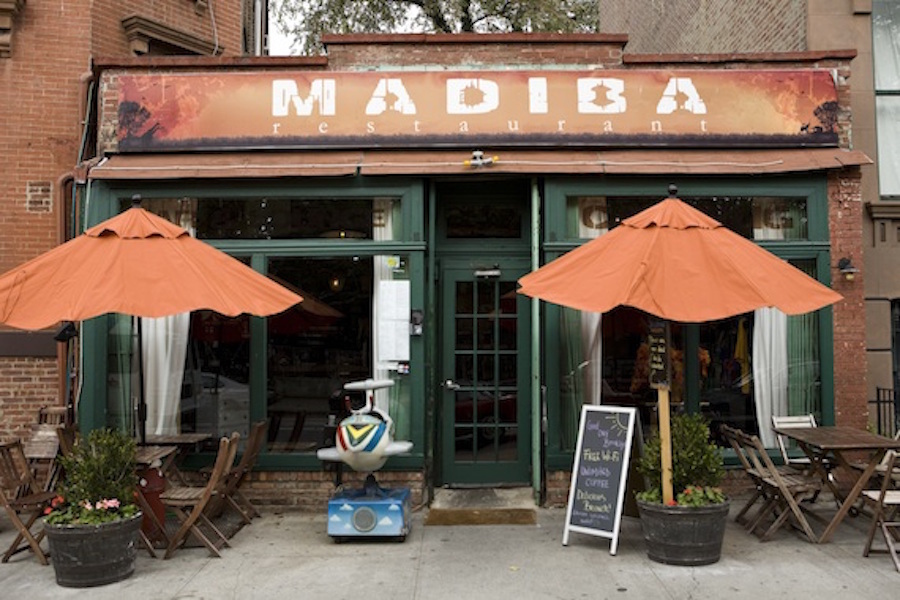For a few years after it opened in Fort Greene in 1999, Madiba was not just the only South African restaurant in Brooklyn, but the only one in New York. Today it enjoys the status of elder statesman in Gotham’s small South African culinary scene.
“I think we have the most diverse clientele on a regular basis of any restaurant I’ve seen,” says owner Mark Henegan, a South African native who founded Madiba with his wife, Jenny. “We get people of different colors, cultures, money brackets. We get local bar guys and sometimes limousines pull up out front. The South African consulate comes and guys from the U.N. It’s a destination spot.”
The Henegans dedicated the venture to Nelson Mandela and modeled Madiba on a shebeen, the informal eateries that dot the South African townships. They started out small, with five tables, five white wines and five reds. Today, after having taken over the space next door, Madiba boasts 50 tables in warm weather, 25 of them on the outdoor terrace.
The all-South African wine list has grown as well. Today, it is nearly 50 bottles strong (ranging from $28 to $90), with an impressive half of those wines available by the glass ($8 to $12). The list reflects the wide diversity of the South African wine world, showcasing chenin blanc and pinotage—the white and red grapes most closely associated with the country—but stretching far beyond.
Among the more notable wines are the legendary dessert wine Klein Constania and hard-to-find Cap Classiques, the South African sparkling wines that are made with the Champagne method and rarely exported. The latter effortlessly accompany Madiba’s traditional South African fare like bobotie, a Cape Malay curry of minced meat baked with egg custard topping, raisins and almonds; a slow-cooked potjie stew, made with oxtail and prepared in a cast-iron pot; and umngqhushu stambu, a corn-and-beans dish traditional to South Africa’s Xhosa-speaking people.
“When we started, there was probably one or two suppliers” of Cape wine, says Henegan. “There wasn’t such a big choice for the first three years. Now there’s so many, and so many varietals.” The Indaba Shiraz, which was the eatery’s house wine in the early days, is still a big seller, as is the Mulderbosch Rosé, which is derived from cabernet sauvignon grapes and sells better than any other wine produced by that high-profile Cape vineyard. “Especially on the hot terrace, people drink it all the time,” laughs Henegan. “Sometimes I look around the restaurant and all the people are drinking it.”
Photo credit: Robert Simonson.



